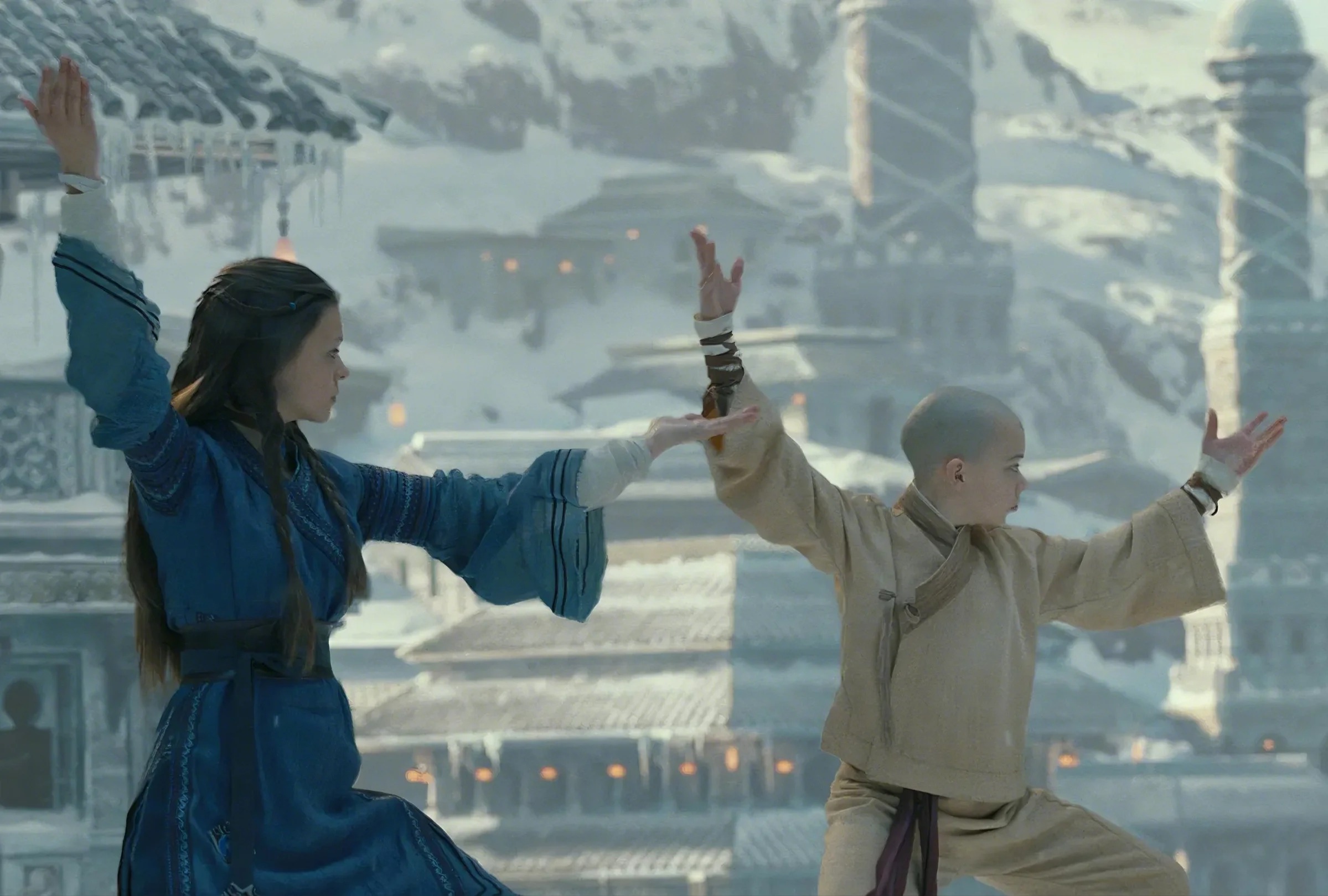The Last Airbender (2010), directed by M. Night Shyamalan, is a live-action adaptation of the acclaimed Nickelodeon animated series Avatar: The Last Airbender (2005–2008). The film attempts to condense the first season of the animated series, which follows the journey of Aang, the last Airbender and Avatar, as he learns to harness his powers and bring balance to a war-torn world. While the animated series is beloved for its compelling storytelling, rich world-building, and multidimensional characters, the live-action adaptation faced significant criticism for its execution.
The film is set in a world where people belong to one of four nations—Water, Earth, Fire, and Air—each associated with a specific element. Certain individuals, known as “benders,” can manipulate their nation’s element, while the Avatar can control all four and maintain harmony.

After being trapped in ice for 100 years, Aang (Noah Ringer), the last Airbender and the current Avatar, is discovered by siblings Katara (Nicola Peltz) and Sokka (Jackson Rathbone) of the Southern Water Tribe. They learn that during Aang’s absence, the Fire Nation waged war against the other nations, seeking global domination.

As Aang begins his journey to master the elements and restore balance, he faces numerous challenges, including Prince Zuko (Dev Patel), the exiled Fire Nation prince desperate to capture the Avatar to regain his honor. The story culminates in the Northern Water Tribe, where Aang defends the tribe against a massive Fire Nation attack and starts to embrace his destiny as the Avatar.

While The Last Airbender had the potential to bring a rich, culturally vibrant story to a wider audience, its execution fell short, leaving fans disappointed and critics unimpressed. However, it remains a cautionary tale about the importance of respecting source material, cultural authenticity, and thoughtful storytelling in adaptations.
